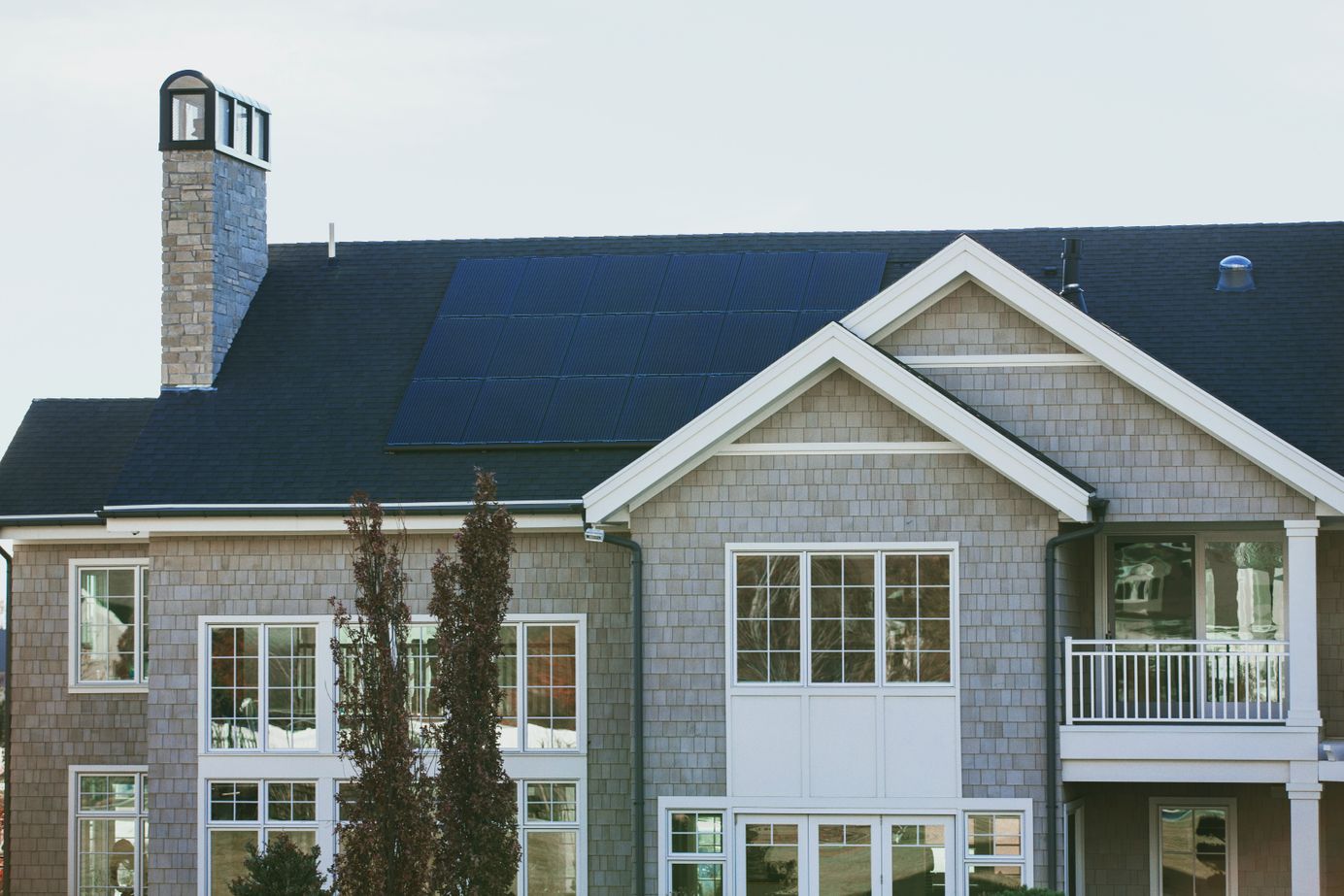
Mortgage Types 101
Are you ready to buy a home but don't know where to start? Get informed with this helpful introduction to the mortgage types available to homebuyers.
Whether you are planning to buy a home or considering it, familiarize yourself with the various mortgage types available to homebuyers. Knowing your options can help guide you towards achieving an important life goal.
Fixed-Rate and Adjustable-Rate Loans
Loans fall under one of two primary categories: fixed-rate or adjustable-rate mortgages. Think of them as parent categories.
A fixed-rate mortgage charges a set rate of interest for the entire repayment term. Known as the “plain vanilla” mortgage, it offers the benefit of predictability; you will pay the same amount of principal and interest monthly. The 30-year fixed-rate is the most common home loan type, and other ranges are available. Shorter terms, such as the 10-year and 15-year mortgages, offer less interest at higher monthly payments.
Even with a fixed-rate loan, your monthly payments may fluctuate. The amount of principal and interest does not change, but taxes and insurance, which are not fixed, can affect the final total.
Homeowners who plan to stay for many years tend to choose a fixed-rate mortgage. A downside is if they want to take advantage of falling interest rates, they will have to refinance their loan.
The adjustable-rate mortgage (ARM) charges an interest rate that varies throughout the life of the loan. The loan usually starts at a fixed low rate for a specific amount of time before that rate periodically adjusts to reflect current interest rates. For example, the 5/1 ARM loan offers an introductory rate that lasts for five years, after which it will adjust annually.
Although adjustable-rate loans allow homeowners to take advantage of falling interest rates, they are unpredictable. Rates can rise and adversely affect budgets. Homeowners who expect to move or sell the house in the next few years may find that ARM loans can still save them money.
Consider your personal finances and the economic environment to determine which loan makes the most sense for your situation.
Conventional Mortgage Types
A conventional mortgage is a home loan that is not insured or guaranteed by the federal government but follows the guidelines of Fannie Mae and Freddie Mac, which are two government-sponsored enterprises that play an important role in the housing finance system.
The conventional 15-year and 30-year fixed-rate mortgages are common home loans. Traditionally, they require 5%–20% down and good credit, but Fannie Mae and Freddie Mac introduced a 97% loan-to-value (LTV) program which reduced the down payment minimum to 3% to encourage home ownership.
Tellus Tip
Homebuyers who put down less than 20% on a new home will pay private mortgage insurance (PMI). Consider putting down 20% to save money over the life of the loan. Unlike FHA and USDA loans, you can cancel mortgage insurance once you have at least 20% equity in the home.
Conforming and Non-Conforming
Most conventional mortgages are conforming. Loans are considered conforming when they are equal to or less than the limit established by Freddie Mac and Fannie Mae and adhere to their criteria. Conforming loan limits matter because these enterprises buy mortgages from lenders to hold them in portfolios or package them into mortgage-backed securities (MBS) to be sold on the secondary market. By law, Freddie Mac and Fannie Mae are restricted to purchasing single-family mortgages with balances that fall within the limit because they are relatively risk-free.
Lenders use the cash from mortgage sales to raise capital and engage in further lending.
Currently, the conforming loan limit for one-unit properties in most of the U.S. is $484,350. The baseline conforming loan limit is adjusted yearly to reflect rising home prices. In high-cost areas, this limit for one-unit properties is adjusted to reflect higher median home values up to a maximum size limit of $726,525. For example, the limit for Fresno hits the baseline, while in San Francisco, that loan limit is maxed out.
Size is the main factor used to differentiate between conforming and non-conforming loans, but what if a borrower wants to finance a home above the conforming loan limit? In this case, a borrower will have to meet stringent requirements to acquire what is known as a jumbo loan. Jumbo loans are non-conforming loans because they exceed the conforming loan limits.
Government-Insured Mortgage Types
Government-insured loans are loans that are backed by the government. The government guarantees to protect lenders from losses if borrowers default on their loans.
FHA Mortgage
Insured by the Federal Housing Administration, the FHA loan is considered the first-time homebuyer mortgage for several reasons. An FHA loan is a reasonable choice if you have limited funds. It requires a minimum down payment of 3.5% and relaxes credit score requirements. All FHA loans require borrowers to make the home their primary residence for at least one year and purchase mortgage insurance regardless of down payment.
The upfront mortgage insurance premium (MIP) costs 1.75% of the loan amount and can be paid at closing or rolled into the loan balance. The annual mortgage insurance premium, which varies from 0.45% to 1.05%, is divided into monthly installments and added to the monthly mortgage payments. They are paid throughout the life of the loan. However, with a 10% down payment at closing, the duration is reduced to 11 years.
Tellus Tip
The FHA does not allow borrowers to cancel mortgage insurance premiums when the LTV has reached 78%. On loans created after June 3, 2013, borrowers who put down less than 10% will pay the annual MIP until the end of the mortgage term or for the first 30 years of the term, whichever occurs first. Consider paying 10% down to reduce the duration to 11 years.
VA Loan
The VA loan is one of the few loans that offer zero-down and no mortgage insurance. Guaranteed by the federal government, the VA loan program is only available to military service members, their spouses, and other eligible beneficiaries. You may qualify if you meet the following conditions:
- You have served 90 consecutive days of active service during wartime.
- You have served 181 days of active service during peacetime.
- You have more than 6 years of service in the National Guard or Reserves.
Some borrowers do make a down payment to reduce the cost of the loan and to pay a smaller VA loan funding fee. The fee begins at 2.15% of the loan amount. With a 5% down payment, the funding fee shrinks to 1.5%.
USDA Rural Development Guaranteed Housing Loan
Like the VA Loan, the USDA loan is government-insured. Backed by the United States Department of Agriculture, the loan program, also known as Section 502, was developed to improve the quality of life for homebuyers who earn low to moderate income and are financing a home in a rural area. Income and rural area eligibility varies by state and county, and all borrowers must use the dwelling as their primary residence to qualify.
The USDA loan finances 100% of the home price—that is, the loan requires no down payment for eligible rural homebuyers—and offers borrowers low interest rates. There is a mandatory upfront mortgage insurance premium of 1.0%, typically financed into the loan, and an annual fee of 0.35% that is broken into monthly installments. Like the FHA loan, the annual fee is paid for the life of the loan.
Which Is Right for You?
Talk to several lenders about the mortgage types that are the most suitable for your situation. They will look at different factors, such as your debt-to-income ratio, credit score, and budget before making a recommendation.
Buying a home can be a complicated process, especially for first-time homebuyers. It’s important to do your research, compare different options, and seek advice to help you get started. Understanding your options will help you feel empowered throughout each step. After all, buying a home is one of life's important milestones.
Don't forget to see how technology can help. Connect with agents, apply for a loan, and keep track of all your home documents with the Tellus app.








